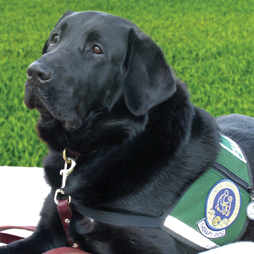In a private letter ruling released last week, the IRS blessed the expansion of a 501(c)(3) organization that plans to begin a program to bring therapy dogs into hospitals and nursing homes with the goal of providing therapeutic psychological and emotional benefits to patients. The program’s main focus is on children and the elderly, helping them to cope with the anxiety of being in a medical facility and lifting their spirits through playful interaction with the dogs. The dogs’ goals are to get as much scratching—pre”fur”rably around the ears and under the collar—and as many belly rubs as possible.
As detailed in the ruling, the program will utilize trained and certified therapy dogs and pair them with experienced volunteer handlers to provide weekly visits to the residents of medical facilities that have signed up for the program. The organization screens the facilities to make sure that they are suitable and safe for hosting the program, the volunteers to make sure they are qualified experienced handlers with background checks and the dogs to make sure they have had their proper health screenings and training. The organization plans to provide the therapy services free of charge to the patients and medical facilities and the costs associated with the care, training and (most importantly) the treats for the dogs will be shouldered by the dogs’ owners.
In ruling on the therapy dog program, the IRS applied the same rationale it used in Revenue Ruling 79-17, 1979-1 CB 193, to grant exemption to a hospice facility. In that ruling, the IRS held that an organization with the sole purpose of coordinating a number of professionals all with the goal of providing services that alleviate the distress of dying persons was a “charitable act” for 501(c)(3) purposes. Likewise, the therapy dog program was held to further charitable purposes by lessening mental and physical distress and encouraging “paws”itive socialization. Thus, the program was found to charitably benefit a class of patients uniquely vulnerable to isolation and depression.
Indeed, few would dispute the benefits of therapy animals for hospitalized patients. If the IRS had ruled that the program wasn’t charitable under 501(c)(3), the nonprofit sector would have met this ruling with a growl.
Click here for our case study on Denver Pet Partners, a local 501(c)(3) organization with a longstanding animal-assisted therapy program.

